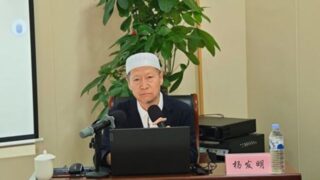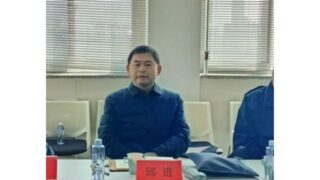Liu Hongzhi was interned in 2019 for denouncing corruption and supporting Hong Kong protesters. Released in 2020, he has now been interned again.
by Zou Luli


In China, if you criticize the Communist Party you may be interned in a psychiatric hospital. If you are lucky enough to be released, one thing you should not do is to reveal that you were abused and tortured in the psychiatric facility. If you do, you will be sent again to the psychiatric hospital, where doctors and nurses whose abuse you have exposed will not treat you kindly.
In a nutshell, this is the story of Chinese dissident Liu Hongzhi. His relatives reported at the beginning of this month that he was detained and sent again to Dali Mental Hospital. He had been released on January 16, 2020, and since then had publicly complained of abuse and torture.
Like many others, Liu became a dissident because of the 321 Explosive Accident, i.e., the explosion of March 21, 2019, in the Tianjiayi Chemical plant in Chenjiagang, Jiangsu, that killed 78 and injured 617 according to the official count (the real victims might have been more). The real causes of the accident were never ascertained, but many local citizens and netizens pointed their fingers at the corruption that made the inspections of security in chemical plants substandard. The reaction of the CCP was to prohibit further discussion of the accident and close the area to journalists.


Liu, who is from Liaoning, was one of the most vocal Internet critics of the authorities for their attitude after the 321 Accident, and caught the attention of the police. Unhappy with the fact that his petitions for a full report on the accident were ignored, he joined other dissident causes and in October 2019 traveled to Hong Kong to support the pro-democracy movement there.
This was too much for the authorities, who detained him for “picking quarrels and provoking troubles” (the crime of Article 293 of the Criminal Code, of which dissidents are often accused) and declared him crazy. He was sent to a psychiatric hospital, something which is now becoming routine for political and religious dissidents, where he was routinely beaten and tortured to “reform” his mind.
He was also told he should keep silent about how he was treated there. He spoke out, and was delivered to his torturers again.








